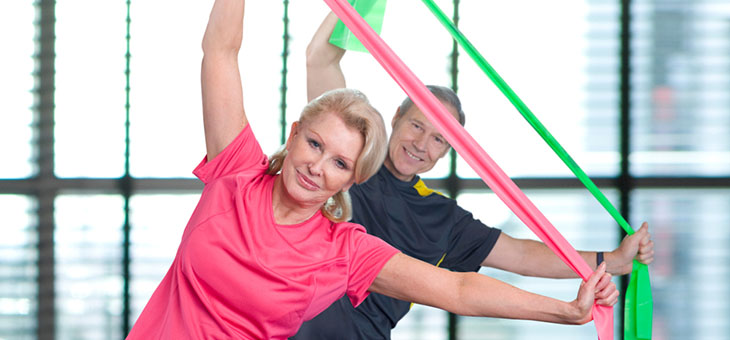Research shows that resistance training improves the health of those aged over 65, and the benefits are notable even when people train as little as once per week.
The benefits include improvements in blood values, muscle strength and mental wellbeing.
“We found that individuals who were close to having high blood pressure, high cholesterol, high blood glucose or high levels of inflammation improved the most after our nine-month training program,” said Dr Simon Walker, of the University of Jyväskylä, which conducted the research.
“Training two or three times per week didn’t provide greater benefit in these individuals,” he said.
Health agencies commonly advocate performing resistance training at least two times per week for all age groups.
Read: These groups can boost your health
This study also found that performing resistance training more times per week was advantageous for things such as maximum strength development, muscle growth and losing fat.
“But for other measures that are important for older people, such as the ability to perform activities of daily living, once per week seemed sufficient,” Dr Walker explained.
“Muscle strength that is needed for carrying shopping bags, walking up and down the stairs and sitting down on a toilet can be improved with strength training,” he said.
Overall wellbeing, tested through psychological measures, also improved over the nine-month training period.
Read: Arthritis discovery gives new hope
Similarly, there were no real differences whether individuals trained only once per week or two to three times per week.
The researchers found that it was very important people improved their psychological wellbeing and motivation for exercise during the study period as it was those people who continued training regularly even after the study had ended.
The researchers point out that their studies show the importance of resistance training for older persons, and that even as little as one session per week can go a long way.

“We need to remember that these individuals trained hard, and safely, when they were with us,” Dr Walker said.
Read: Experts call for national driving test
“We supervised every training session closely, making sure that they used correct technique and also ensured that they always tried to improve their training loads compared with previous training sessions,” he added.
Disclaimer: This article contains general information about health issues and is not advice. For health advice, consult your medical practitioner.

